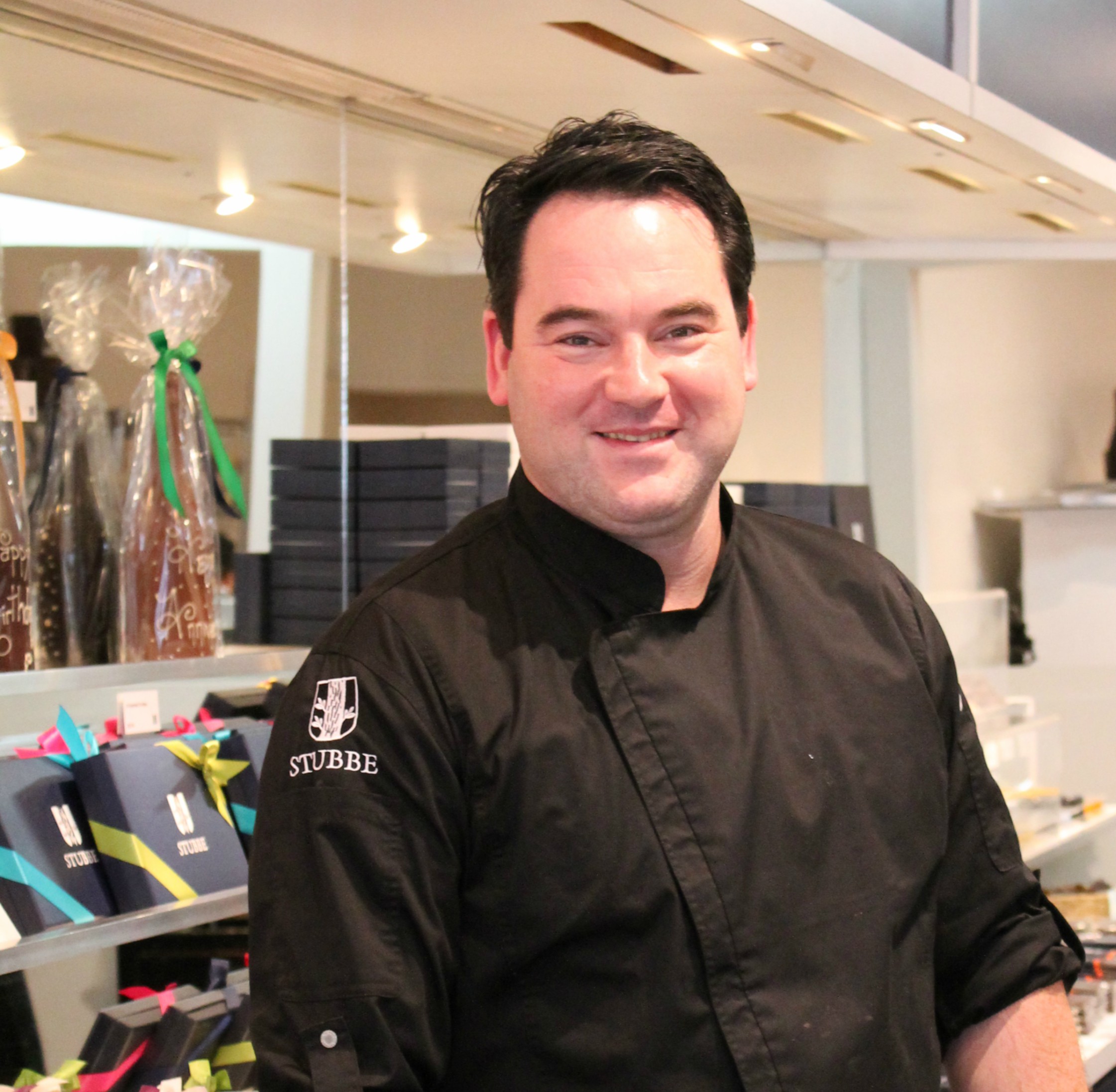
Chocolate and skyscrapers
Facebook series #GermansInToronto
Q: Why did you move to Canada?
A: It started with my father, as he immigrated to Canada more than 30 years ago, but I grew up in Germany. I completed my apprenticeship as a confectioner in Germany and also gained some work experience in a couple of hotels and stores in Germany. At some point I thought “Oh, let’s take a look at what my father is doing in Canada”. My father then made sure that I’d get the “landed immigrant”-status in Canada immediately, which was way easier back then, than it is today […]. Initially, my plan was to go to Canada for a year, but I’ve been here ever since 1993.
Coming to Canada I found there was a higher level of appreciation for my craft. Tarts or fancy cakes in Germany are mainly being sold during the afternoon. People really enjoy eating their piece of cake while drinking some coffee. But in Canada, nobody’s buying just one piece of cake for the afternoon. Cakes or tarts are mainly being sold for the evening, as a dessert after dinner. This is also not being done on an everyday-basis, but rather for the weekends. So, if you’re coming to Canada under the impression of selling single pieces of cake, you’ll quickly realize that things don’t work that way over here – just because the culture of dining is completely different.
Q: How does it feel to be a German in Canada?
A: As Germans, we tend to integrate ourselves throughout the city. The Greeks or Italians, for example, all have their own little villages in Toronto, such as Little Italy or Greek Village, but there isn’t any Little Germany. Even when I meet with my German friends in Canada, we mostly speak English, just because English is a rather easy language. We sometimes almost forget that we’re actually Germans. However, living and working as a German confectioner in Canada definitely has its advantages, since the people over here really appreciate the German traditions. Stubbe has existed since 1845, first as a bakery, now as a confectionery. This means, the Stubbe family traditions are older than the land of Canada itself, which is really crazy!
Q: What is it that the Germans need to adapt from the Canadians and vice versa?
A: This may sound contradictory, but I miss the German punctuality and structure to every day life. But on the other hand, I really enjoy the relaxed and easy-going Canadian attitude, and I think that Germans could incorporate this into their lives. Since the people over here are more relaxed, their lifestyle seems to be easier. You know, every time I go back to Germany, things feel very orderly and structured, but this might also have to do with the small-town-environment I grew up in in Germany.
In Canada, it is way easier to do your own thing. Not just in private life, but also in business life. All the German tradesmen are organized into professional associations according to their industry and you don’t have that over here in Canada. […] So if you have a good idea for some sweets, you just have to rent a store or start selling on the Internet and that’s it – you’re able to sell your product. It wouldn’t be that easy in Germany due to all the strong regulations. I mean, of course, those regulations might lead to a higher standard quality for products, but there’s simply a lack of all those liberties that are recognized as just basic and common things in Canada. That is what I definitely miss in Germany and I really advise the Germans: take a look at the Canadians when it comes to their relaxed and easy-going way of life!
Q: Please describe what the words “zu Hause” or “Heimat” mean to you.
A: Heimat? This is a really tough question. Though Germany will always be my Heimat, I now consider Canada to also be my Heimat since my family and I are living here and my daughter is growing up in Canada. Nevertheless, it is very important for me to have my daughter raised with German traditions and values; in this sense my daughter is my ongoing connection to Germany as my Heimat. But why is it not possible to have two countries as a Heimat? This is why I consider myself to have two kinds of Heimat, both Germany and Canada. I see myself as a global citizen.